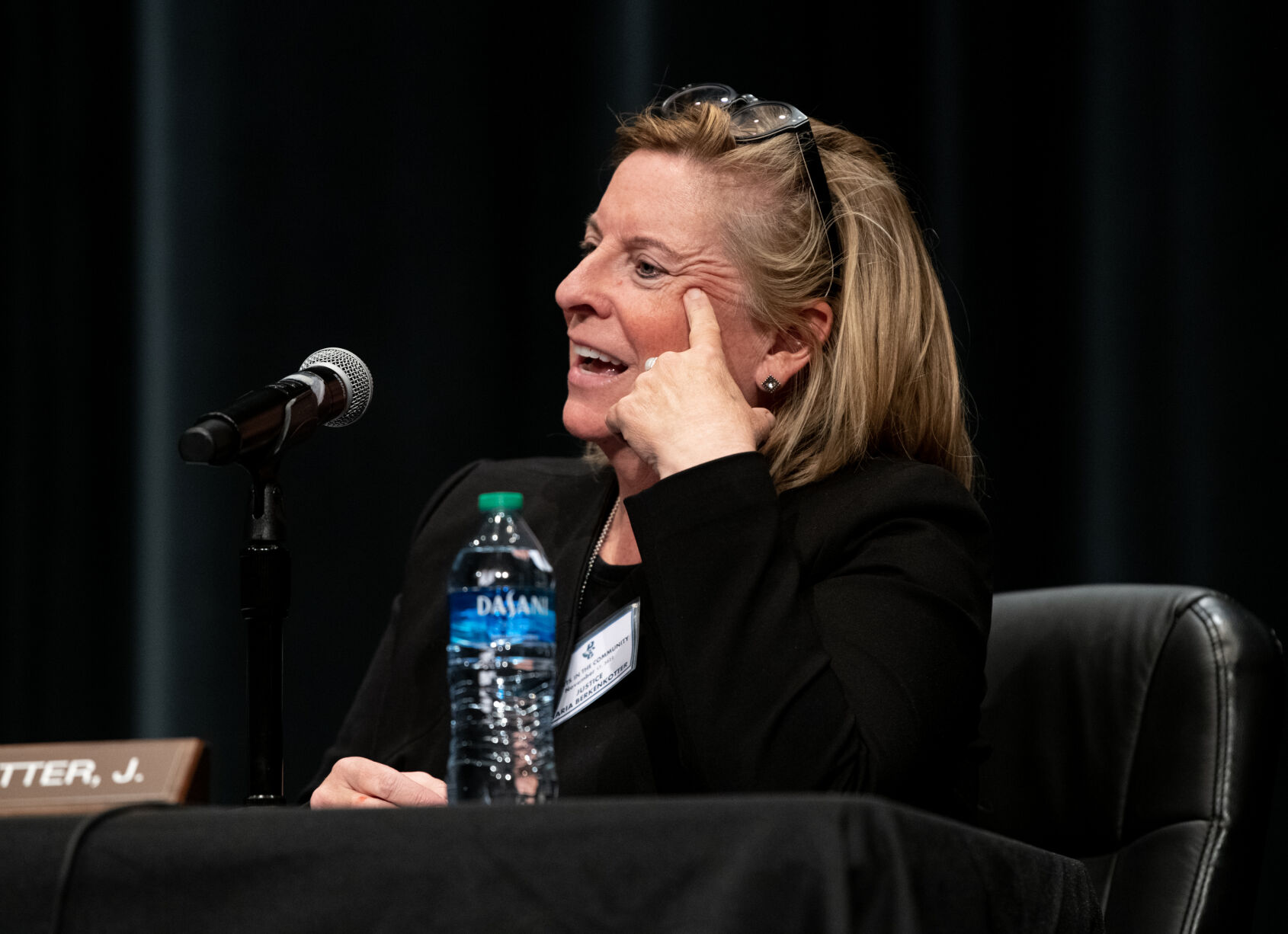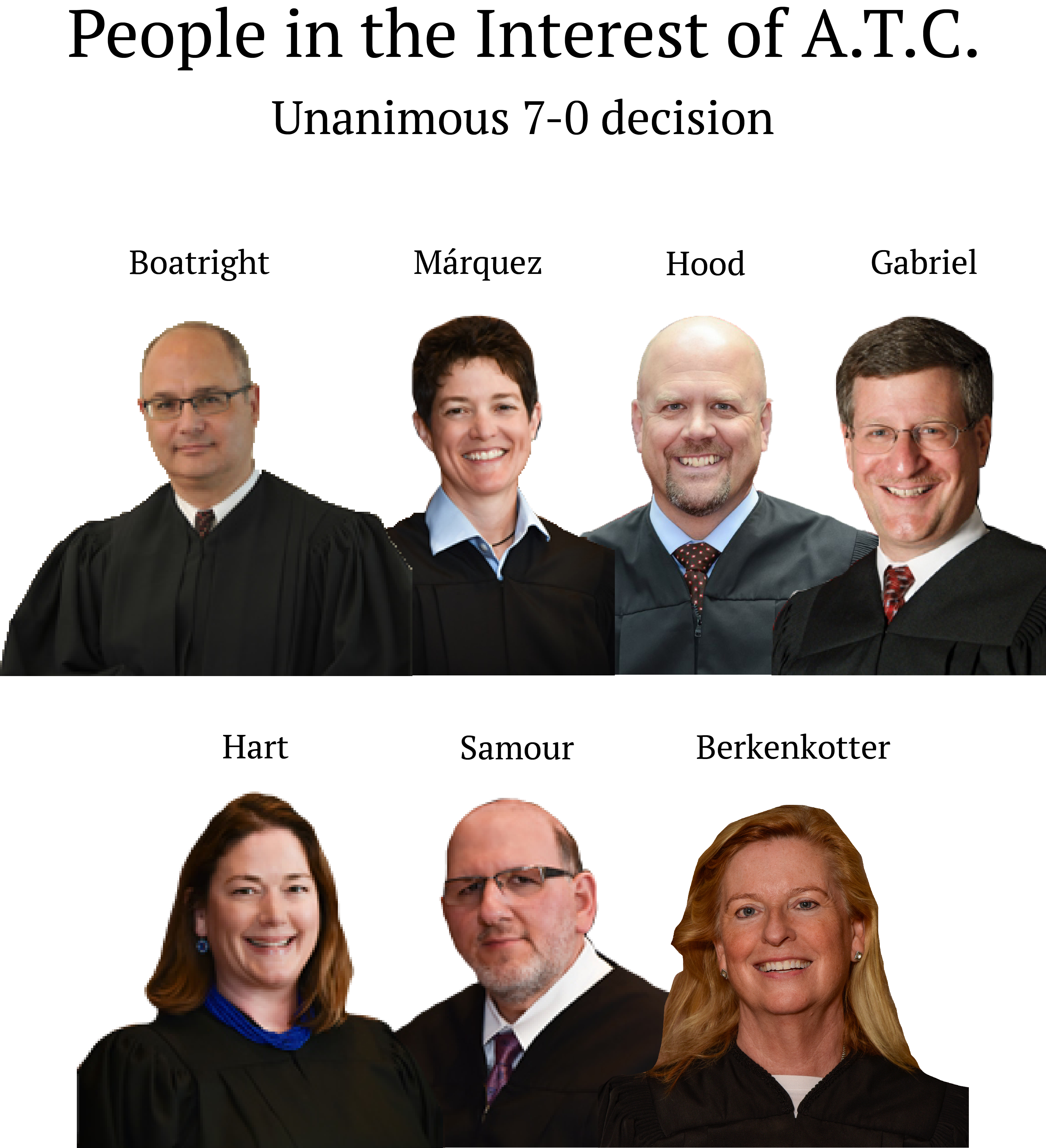Colorado Supreme Court clarifies juvenile defendants can immediately appeal competency findings

When a magistrate decides whether a juvenile defendant is competent to stand trial, that determination is appealable to a judge right away, Colorado’s Supreme Court ruled on Monday.
Addressing a question it had never before answered, the court acknowledged there would be significant consequences if a child were to proceed to trial despite actually being incompetent, and with no second set of eyes reviewing the magistrate’s decision.
Based on Colorado’s Children’s Code, which Justice Maria E. Berkenkotter referred to as the “ground rules,” parties may agree to have a magistrate hear their case instead of a judge. Magistrates are hired by the courts to perform a more limited range of judicial duties.
“And those ground rules provide that when a party who is entitled to a hearing before a juvenile judge in the first instance waives that right,” she added, “that party is entitled to seek interlocutory review of the magistrate’s findings and recommendations.”
Interlocutory appeals happen in the middle of a case, in contrast to the usual protocol of filing an appeal after the proceedings are concluded.

The Office of the Child’s Representative, which provides legal representation to children, believed the Supreme Court’s April 24 opinion read the law correctly.
“When competency is raised in juvenile delinquency, we run the risk of subjecting the most vulnerable children to unnecessary prosecution if we get it wrong,” said executive director Chris Henderson. The ruling “liberally construes the language of the Children’s Code to ensure that incompetent juveniles are not forced to proceed in the juvenile justice system without a meaningful opportunity to seek judicial review of a magistrate’s findings.”
In the underlying case, a 17-year-old identified as A.T.C. was involved in juvenile delinquency proceedings, which is the equivalent of a criminal case for children. A psychologist originally found A.T.C. incompetent to stand trial – meaning he could not participate meaningfully in his defense and understand the proceedings.
After subsequent evaluation, El Paso County Magistrate Jayne Candea-Ramsey decided A.T.C. was competent to move forward.
A.T.C. appealed to District Court Judge Lin Billings Vela, but she ruled there was “no other independent statutory authority” for her to review the magistrate’s determination.
The Supreme Court disagreed. The Children’s Code provides that when parties allow magistrates to conduct hearings, the magistrates’ findings are “subject to a request for review” by a judge.
“While this may result in more requests to review competency determinations, that is what the statute commands, and we are bound by its words,” Berkenkotter wrote.
A spokesperson for the Fourth Judicial District Attorney’s Office said prosecutors were “pleased to assist” the court in interpreting the relevant laws and procedural rules.
“There has never been a question that a juvenile may seek review of a competency finding,” said Howard Black. “The only issue was the point in the process when that could occur.”
The case is People in the Interest of A.T.C.













